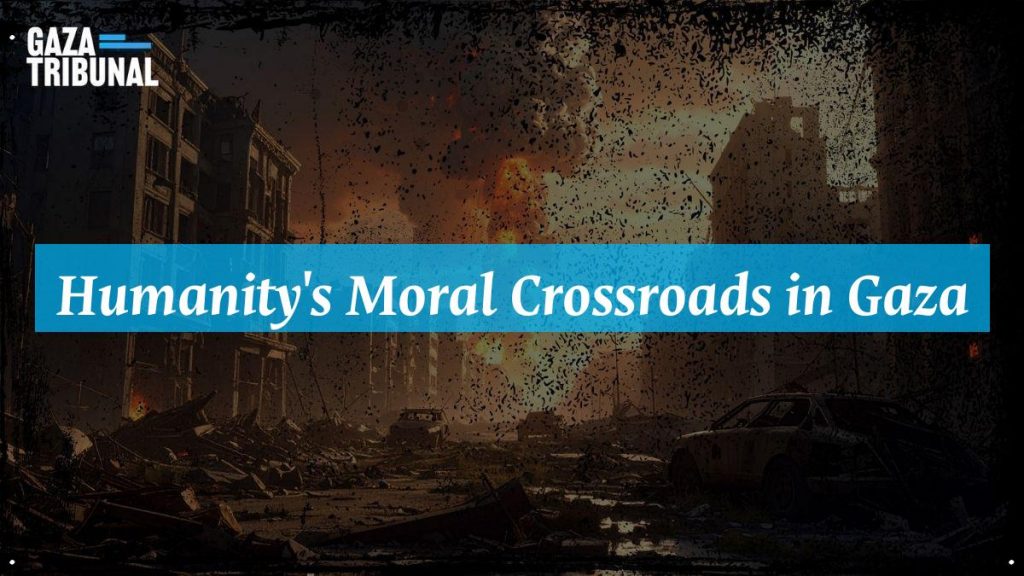Richard Falk, the president of the Gaza Tribunal, recently addressed an urgent situation in Istanbul. During a session focused on escalating violence in Gaza, he called upon world leaders to act decisively. The tribunal urged for authorization from the U.N. General Assembly for armed humanitarian intervention before further tragedy unfolds. Falk described Israel’s current military actions as representing “the .” His remarks highlight growing fears regarding civilian safety amid conflict dynamics.
The recent declaration by the tribunal stressed bypassing traditional pathways often hindered by political maneuvering within established institutions like the Security Council. Instead, legal frameworks Kısacası şöyle those stemming from past resolutions offer alternative routes for action when necessary measures are not upheld globally. This moment echoes broader concerns about human rights and protection needs under severe conditions that have persisted over years now—why has adequate response been so elusive? With calls resonating through international forums calling attention to these realities—it seems we must confront how history might judge this chapter going forward without meaningful intervention or accountability measures at play here.
Falk’s Statement on Gaza
Richard Falk, the former U.N. Special Rapporteur on Palestinian human rights, spoke at an emergency session in Istanbul regarding the situation in Gaza. He urged world leaders to support a humanitarian intervention before conditions worsen further. According to him, Israel’s military actions represent what he termed “the deadliest phase of the genocide.” This perspective amplifies calls for immediate global action.

The tribunal declared that failure by international communities could result in dire consequences for many civilians trapped within conflict zones like Gaza. The urgency of these remarks comes as various reports suggest that nearly one million displaced individuals currently seek refuge from violence and destruction.
UN General Assembly’s Role Highlighted
Diving into potential solutions during this crisis, Falk emphasized leveraging existing frameworks Anlatmaya çalıştığım the Uniting for Peace Resolution from 1950 and () established in 2005. These avenues provide ways forward when traditional mechanisms stall due to political gridlock or vetoes at higher levels like Security Council meetings.
This suggests a shifting strategy might be needed among nations aiming toward peacekeeping efforts amidst ongoing atrocities faced daily by people living there—especially considering rising casualties reported since escalations began anew earlier this year!
The Targeting of Journalists
An alarming aspect pointed out was how journalists are increasingly endangered while trying their best not only cover events but ensure truthful representation reaches broader audiences too! Bir de şu var: journalist Assas al-Shafir along with four colleagues lost their lives recently under circumstances described harshly as deliberate attempts against those who tell stories about realities unfolding right now!
This targeting reflects deeper systemic issues where facts become risks rather than fundamental tools aimed solely towards justice seeking initiatives enhancing awareness globally—from local citizens through major institutions attempting reform across borders thus preserving historical narratives essential long term progress moving ahead… I can’t help but feel it raises questions about free speech itself even here today…
Crisis Situation Described By Tribunal Members
A deepening humanitarian breakdown emerged after almost two years marked significantly intense assaults; members articulated just how critical things have turned throughout months past leading up until current times—which they called unprecedented emergencies beyond measure often failing typical parameters outlining crises historically recognized over centuries gone!
I mean think about—the statistics reflect significant challenges faced every hour around survival rates declining rapidly because basic needs remain unmet despite outside assistance being promised repeatedly yet rarely materializing meaningfully enough lately without any visible change coming soon down road expected … How does someone find hope?
“Eighty-five percent homes destroyed,” he noted solemnly conveying shocking reality revealed fully exposed real time experiences lived daily unto all suffering under constant pressure felt heavily weighing upon us consistently!” said Falk emphatically.< /blockquote>
Source: plushaberler.com
Gaza News


